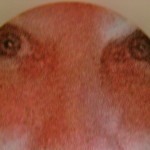 Just because I think about stuff doesn’t mean I’m smart. I never come to any earth-shattering conclusions or theories.
Just because I think about stuff doesn’t mean I’m smart. I never come to any earth-shattering conclusions or theories.
One thing I often think about is the Internet and its affects on the world. You can tell I am of a certain age because I can think in terms of before and after. Younger people have no firsthand reference to a time when we were not entangled in the World Wide Web.
Anyway, some things I thought I’d share.
First is a blog I ran across by Karen Alea “The Impossibility of Oversharing” which she posted on May 18, and in which she says, “The fallacy of oversharing is that it is innocent—that I, or whomever, is oblivious to what they are doing.”
Oversharing happens when something is blurted out—yes, I can identify with that. Foot-in-mouth disease—we’ve all had that feeling. But she counters, “Sharing is manipulative.”
I guess I instinctively knew this. It is the same m.o. as a confidence man. But I needed to read it stated so plainly. You can read her post here.
Another interesting thing I just came across is this BuzzFeed article on John Green, the well known Indianapolis author or The Fault in Our Stars and other books, and his response on Tumblr to online hate. He says some people get a rush from online indignation. It seems true that some people wonder upon waking: What will I be mad about today?
He refers to research done by Jonah Berger who found that “feeling fearful, angry, or amused drives people to share.” In a Journal of Marketing Research article “What Makes Online Content Viral?” Jonah Berger and Katherine L. Milkman write: “Content that evokes high-arousal positive (awe) or negative (anger or anxiety) emotions is more viral.”
Plus there’s “Ending the Internet Outrage Cycle” by Spencer Kornhaber, the The Atlantic Monthly article from April that is all about heated behavior online.
As to maintaining one’s public image, we can look to two recent stories for cautionary tales. Just yesterday, Illinois Senator Mark Kirk had a hot mic episode in which he was heard saying something stupid, using ghetto slang. Ongoing is the negative buzz about Chet Haze an aspiring rapper who comes from a white well-to-do background (son of actor Tom Hanks) and uses the n-word. Both have been called out for their behavior.
Here’s a lesson I know I should remember from time to time: Don’t try to sound cool.
Even if these two had not said something offensive, they would have sounded pathetic because they sounded so inauthentic. Let’s all be real.
Also wondering: Is “politically correct” a loaded term in itself? What do you think?
The last thing I’ll mention is the short newspaper article on page fourteen of the Chicago Trib today (“Navy bans firm amid sexual exploitation claims”) about the medical contractor doctor (John Hagmann of Deployment Medicine International) whose medical license was suspended “because he conducted unnecessary and invasive procedures.” He allegedly did bizarre things to students, including injecting them with ketamine. The whole thing is salacious and lurid and I predict it will become a big news sensation.
Just so you know, you are sensational for reading and I mean that in the very best way.
Peace, love, and solace
Some very good things to be thinking about! When it comes to online haters, just like road ragers, the relative anonymity may seem to cloak them, but instead I think it’s revealing of something lacking inside. Character has ever been about how people behave when they think no one’s looking (or listening). Great piece.
Ellen
Thanks for reading, Ellen. I agree. Anonymity can make us bold. For some, it brings out the worst.